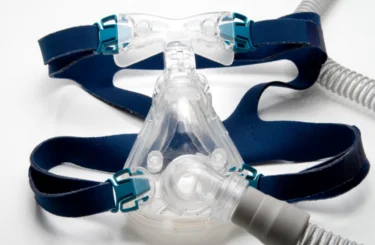
What To Expect During Your Personal Injury Deposition
Personal injury lawsuits arise when the fault or negligence of one person causes harm to another. These cases cover many kinds of injuries and are designed to hold defendants financially accountable for their mistakes.
Workplace injuries, car accidents, and medical malpractice suits are all common examples of personal injury lawsuits. However, these cases can also include non-bodily harm, such as the intentional infliction of emotional distress.
If you’re considering filing a personal injury lawsuit, the first thing to do is discuss your situation with an experienced personal injury attorney. Having a dedicated lawyer ensures your rights and interests are fully protected and is the best way to prepare for each new phase of your case—especially your personal injury deposition.
What Is a Personal Injury Deposition?
In the legal world, depositions are used to gather facts and information from individuals relevant to a case. This fact-finding process requires witnesses to answer questions, recount events, and provide context, which is admitted as sworn testimony in a court of law.
While that might sound intimidating, a deposition essentially boils down to an interview—albeit an important one.
Your personal injury deposition will be the first and most critical step to gather needed evidence for your case. Your answers will be recorded as your official narrative and provide the foundation both sides use to build their legal strategy. This is why it’s so important to have an experienced attorney to help you prepare.
Can My Attorney Attend My Deposition?
Absolutely! Your attorney is a vital member of your legal team and should always be present for any official proceeding.
An attorney for the defense will also attend your deposition, and both sides can ask you questions during this process.
Will I Have to Go to Court for My Deposition?
No. Personal Injury depositions are rarely held in a formal courtroom. Instead, this meeting will most likely occur in a conference room at your attorney’s office.
What Types of Questions Will I Be Asked During My Personal Injury Deposition?
Each personal injury suit is unique, which means that deposition questions vary between cases. Your questions will reflect the facts of your situation and will be designed to get to know you—and your circumstances—better.
These questions are generally grouped into categories and cover various topics, including personal background information, accident details, ongoing medical treatments, damages, and evidence.
For example, you might be asked:
- What is your name and birthday?
- Where do you live?
- How much education have you received?
- Are you married?
- How many children do you have?
- What is your employment history?
- How did you receive your injury?
- Were there any witnesses to the accident?
- What kind of medical treatment did you receive?
- Did you file a police report?
- Are there any photos of the accident?
- What evidence can you provide?
- Do you have any ongoing complications?
Most deposition questions are drafted and prepared well in advance; however, anticipating at least a few spontaneous queries is always a good idea.
If you answer all the questions honestly and follow your personal injury attorney’s counsel, you have nothing to worry about during this process.
How Long Will My Personal Injury Deposition Take
Depositions do not have a set timeframe, but most take 2-3 hours, with some lasting as long as 4-6 hours. Before attending yours, ask your personal injury attorney what to expect; they’ll be able to provide you with a more accurate estimate based on the facts of your case.
Let Sommers Schwartz Help With Your Personal Injury Deposition
Just because accidents happen doesn’t mean you should have to pay the price. If you’ve been harmed because of someone else’s fault or negligence—and are thinking about filing a personal injury suit—we want to hear from you. Contact Sommers Schwartz today for a free consultation, and let our team of highly skilled personal injury attorneys help you pursue the justice you deserve.
Robert B. Sickels
For more than 30 years, Robert Sickels has successfully represented plaintiffs involved in complex personal injury, medical negligence, and products liability matters.





